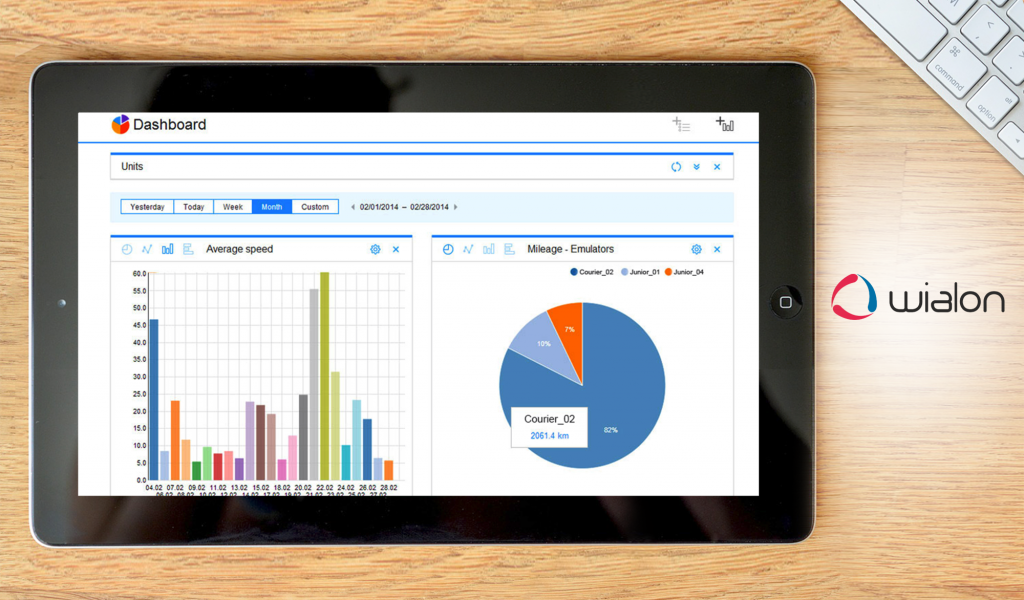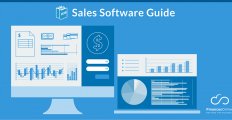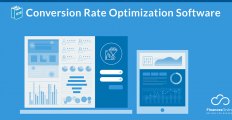Although operating a fleet of vehicles is vital to many companies, supervising vehicles and employees at the same time can be a real struggle. That is why you need a fleet management system. This technology can save you manpower, time, and expenses while obtaining insights that can only be generated by ingenious unit calculations.
Many fleet tracking programs today are customized to various types of businesses. To help you decide, we present this guide detailing all the things you should know about these tools. This guide answers the question, “What is fleet management system?” We’ll also talk about how fleet management system works, its features, benefits, costs, examples, and what to look for in the software.

What Is Fleet Management System Table of Contents
What Is A Fleet Management System?
When your organization requires the operation of commercial vehicles, a fleet management software is of utmost importance to your processes. So, what is a fleet management software? The fleet management system meaning deals with streamlining fleet performance and maintenance so as to strengthen organizational productivity, minimize any occurrences of waste, and make business functions trouble-free. The purpose of fleet management also includes ensuring that drivers are safe while they are on the road and that products are delivered on time.
What organization is not keen on refining its competence while simultaneously guaranteeing its vehicle and driver safety? Thanks to fleet management systems, these dreams are now a reality. And they are starting to transform the way workplaces strategize and pull together their manpower.
Source: US Department of Transportation
Types of Fleet Management Systems
Aside from the fleet management system definition, it’s also important to understand different types of the software. The type of fleet management system that you will have to invest in relies on the size and industry of your business, as well as the type of assets you take forward. Your location matters too as compliance laws vary by country.
You may encounter the following tools as you search the web for “what is a fleet management system?”
- Fleet fuel and speed management. Many fleet management systems can inform you how much fuel costs you monthly. They can help control fuel usage by generating fuel consumption reports and trends, driving behavior that affects fuel wastage, and more.
- Fleet management with video. A cloud-based video gives you a crystal-clear picture of what is happening with your vehicles. Some video tools can consistently record and analyze certain incidents based on your set triggers.
- Fleet management with GPS tracking. Advanced fleet management platforms can locate, track, and command vehicles in real-time with the help of interactive maps. This allows you to handle resources and respond quickly to problems should they arise. GPS tracking lets you instantly spot and dispatch drivers, set notifications to geofences, and forward ETAs to customers, to name a few.
Features of Fleet Management Systems
Online sales are revamping as consumers expect that brands are now operating nationally or internationally. The result? Businesses and logistics providers need to cope with a growing demand for local and global deliveries. They should also make sure that shipments are quick and systematized, all while reducing delivery costs.
New delivery management demands newer technology. This makes fleet management systems a fundamental tool for dispatchers, route planners, and fleet managers. Businesses have various fleet operations with various requirements; consequently, fleet tracking tool features differ from platform to platform.
Don’t know where to begin? Here are the most crucial features to look for when weighing up fleet management solutions:
Accessibility
In this mobile era that we live in, your tool of choice should be readily accessible. Choose one that you can use anytime, anywhere. Check with the provider if their product is mobile-optimized and can be accessed from smartphones, tablets, or desktop computers. Ensure that it can also be used with all leading browsers.
Usability
There is not much you can do if your fleet management suite is hard to navigate. During free trials or demos, test all of its features first to see if it can easily do anything that needs to be done, if it has a user-friendly interface, and so on.
Actionable insights
Many fleet management systems can produce as much data as you want, but you do not need to be bombarded with too much information. Choose one that can gather and process data for you. It should also provide easy-to-understand reports, dashboard summaries, upcoming trends, and other important data that will help you come up with intelligent business decisions.

Fleetsmith makes it easy to monitor various important metrics about your fleet.
Benefits of Fleet Management Systems
Same- or next-day delivery is one of the many services that consumers seek today. Undeniably, this is what makes fleet management integral to businesses that want to make the most out of their resources and nurture growth.
With the right fleet management system, your business can also reap the following benefits. These benefits can also help you understand how a fleet management system works.
Improved drivers’ performance
Fleet managers find it hard to track their drivers’ performance when they are out transporting and delivering products. In most situations, poor driving methods lessen the life span of a fleet and even lead to hazardous accidents.
Fleet management systems offer feasible solutions to easily track driving behaviors and improve the attitude of drivers. Fleet managers can then come up with new techniques to uphold durability and mitigate risks.
Cost reduction
Email notifications and automatic reminders give you plans for vehicle repairs, maintenance, and on-time fleet audits. This habit saves redundant expenditures on purchasing new vehicles that call for replacements due to irreversible damages, prolonging the life of fleets.
Another principal element in minimizing costs is fuel management. By having an estimate of fuel consumption on particular distances, fleet managers can track driving methods that result in fuel wastage or vehicles that use up more fuel.
Satisfied customers
Customers seek the services of a brand that provides them with outstanding delivery service. Drivers also see the customer locations and streamline their working hours based on ETAs. In this manner, they can work as per the delivery demands and fleet managers can pay attention to other business affairs.
Examples of Fleet Management Systems
Various businesses across industries use the following top fleet management apps. Take a closer look at them and figure out which one can push your business to success.
Nextraq
NexTraq is a GPS fleet management program that can be deployed by businesses with fleets, ranging from those with two to over 2,000 vehicles. With its prominent solutions and mobile app, it has been a key innovator in the telematics landscape since its launch. It aims to provide a user-friendly, extensive, and dependable tool in the fleet tracking and GPS markets.
Wialon
Wialon is a multifunctional fleet management platform that is also implemented for stationary assets and mobile tracking. It backs a selection of cartographic services used in tracking, including Open Street Maps, Google Maps, Bing Maps, and HERE Maps. Currently, it can be integrated with over 2,200 GPS tracking device models.
GPSWOX
GPSWOX is an international firm that offers GPS fleet management, vehicle tracking, and personal tracking services. Personal households and companies throughout the world use these services. This app allows its users to efficiently dispatch drivers, monitor and protect the drivers and vehicles, spot problem staff members, and provide customers with accurate arrival times.
WEBFLEET
WEBFLEET is a web-hosted solution built to promote more effective fleet management. It hosts powerful features for fast vehicle tracking, fleet optimization, and workflow management. It also aims to boost driver performance through live traffic information and professional navigation.
Fleetsmith
Fleetsmith is a fleet management application for organizations that utilize Apple devices. This mobile device management service automates various processes and tasks to save users’ time and protect them from certain risks. It puts iOS and Mac devices on autopilot when setting up and adding new devices, enforcing rules, applying patches, collecting intelligence, updating security, and so on.

A fleet management system also helps you generate visual reports fast, reinforcing your decision-making process.
Cost of Fleet Management Systems
What is a fleet management system going to cost you? It can be priced per user, per vehicle, or per company. Some providers also offer tailored quotations.
If you wish to have a full-packed fleet management software, you need to take into consideration everything that goes into the overall cost. A small fleet can already get expensive if you are eyeing numerous features. These systems have a large-scale range of costs depending on your requirements, whether how many fleet assets you have or you pay per month or per year.
To give you an idea, GPSWOX comes with one free plan and three paid plan. The platform’s Lite Plan costs $2.99 per month for 1 tracking object, real-time tracking, mobile apps, and history and reports, among other features.
Fleet Management Systems Buying Factors
Your quest does not stop at answering the question, “What is a fleet management system of vehicle?” Besides knowing how a fleet management system works, you should also understand the many factors to consider before buying one. Some of them are:
Vehicle management
Vehicle management may be inclusive of a GPS tracking device and a fleet alarm feature. GPS vehicle tracking lets fleet managers view their vehicles’ locations on the spot. This enables them to know where their fleets are, plus, if they are idling, moving, or parked. Meanwhile, a fleet alarm feature notifies users while their vehicles are on the road. If the vehicle has been stopped with the engine turned on for quite a while, it can notify the driver to turn off the engine.
Driver management
Driver management tracks and assesses necessary driver criteria, which include acceleration, speeding, extreme breaking, and over-idling. This feature enhances driver productivity and efficiency, avoids fuel wastage, reduces risks of accidents, and improves overall vehicle performance.

GPSWOX offers top-notch white-label GPS tracking software at reasonable prices
Fleet Management Systems Trends
What is fleet management software years from now? Technological advancements have dramatically reshaped the fleet management industry. And new innovations are still being devised every year to amplify the industry even more. The most favorable trends that could pave the way for better fleet management practices are as follows:
IoT
Our internet-connected devices are here to make our lives easier and better. Watches, appliances, our entire homes, and even cars can be connected to the internet. By 2023, the worldwide new vehicle sales of connected cars are predicted to be over 85%. As a result of the 2021 FMCSA Electronic Logging Device (ELD) policy, practically all vehicles in the trucking industry now are connected with a connected device to some degree.
Connected cars can deliver software updates over a wireless network, WiFi connectivity, online services and apps access, and GPS tracking. This trend has begun making fleet management an efficient operation.
Electric Vehicles
General Motors introduced the EVI in 1996 to test the first pool of electric vehicles. This event succeeded but faced significant drawbacks. Presently, it has become one of the most turbulent automotive industry trends. Tesla, Nissan, and Chevrolet explored this trend. Later on, GM launched its new electric pickup, EV fleet services, and last-mile EV delivery van, alongside its mission to produce 20 new EV models by 2025.
With these, fleet managers will have a lot of electric pickups and delivery vans to choose from very soon.

Potential Issues with Fleet Management Systems
What is a fleet management software’s major setback? Fleet managers are responsible for five leading fleet areas: vehicle acquisition, vehicle maintenance, fuel management, health and safety, and compliance. They may have to face the following issues:
- Continuous changes in vehicle legislation. On top of recognizing the purpose and appropriateness of vehicles and dealing with vehicle manufacturers, fleet managers have to regularly assess changes in vehicle legislation.
- Rising fuel costs. Market price fluctuations and many other circumstances are some of the things that cannot be controlled by fleet managers. An efficient fleet manager has to gauge his or her options to determine if they still live up to the greatest cost savings.
- Driver accidents. The fleet manager needs to ensure that these accidents are acted on suitably. Vigorous fleet reporting processes must be imposed so that claims and repair works can be speedily and effectively carried out.
Choosing the Best Fleet Management System
Being at the helm of a fleet of vehicles entails a chain of roles and decisions headed by many individuals in a company. Software cannot take over human labor, but it can optimize processes by performing strenuous tasks off the plate. Fleet management systems give your fleet drivers more power when it comes to decision-making, while managers will have fewer issues to be concerned about and they can do their jobs faster.
The range of fleet management service options out there can indeed make your decision-making a complicated process. We suggest that you familiarize yourself with your top fleet management service choices, register for their free demos or trials, and then conclude which one best fulfills your business goals. Reckon if the provider also has a good reputation in the industry and if it is committed to serving you even after the purchase.
After knowing the perfect responses to the questions “What is a fleet management system” and “How a fleet management system works,” it is time to know more about the newest details in the fleet industry by reading our guide to the top fleet management companies.


























Leave a comment!